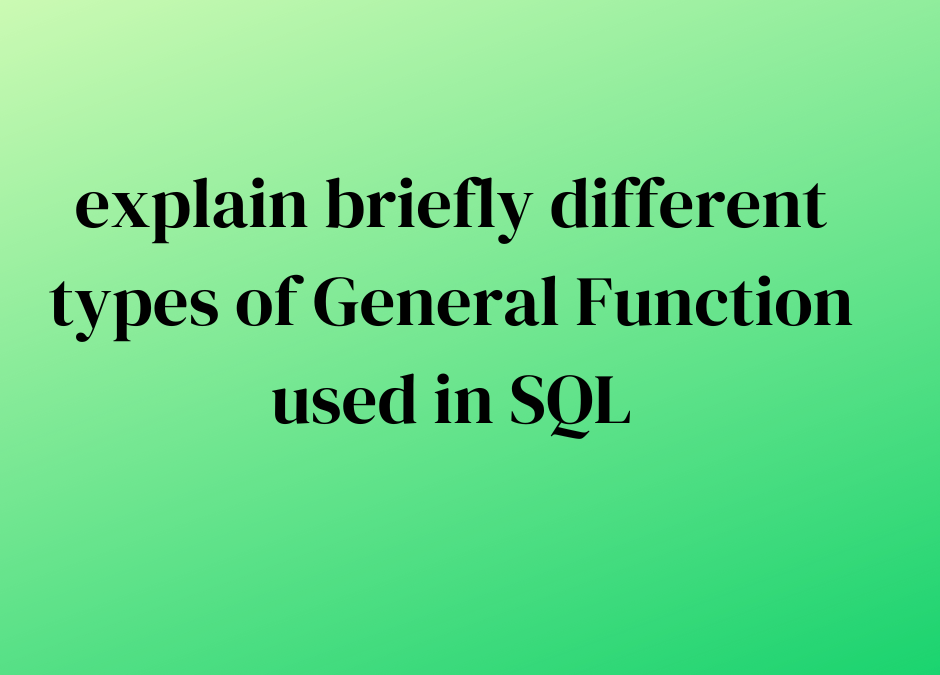- Aggregate Functions: These operate on a set of values and return a single value. Examples include
SUM,AVG,COUNT,MIN, andMAX. - String Functions: Manipulate and operate on strings. Functions like
CONCAT,SUBSTRING,UPPER,LOWER,LENGTH, andREPLACEare used for string manipulation. - Numeric Functions: Operate on numeric data types. Functions such as
ROUND,CEILING,FLOOR,ABS,POWER, andSQRTare used for mathematical operations. - Date and Time Functions: Perform operations on date and time values. These include functions like
NOW,DATE,TIME,DATEADD,DATEDIFF,MONTH,YEAR, andDAY. - Conversion Functions: Convert data from one type to another. Functions like
CASTandCONVERThelp convert data types. - Conditional Functions: Evaluate conditions and return values based on the condition.
CASEandCOALESCEare common conditional functions used in SQL.- NULL-related Functions: Handle NULL values within queries. Functions like
ISNULL,IFNULL, andNULLIFhelp manage NULL values in data. - Window Functions: Perform calculations across a set of rows related to the current row. Functions like
ROW_NUMBER,RANK,LEAD, andLAGare used in this context. - Mathematical Functions: Offer various mathematical operations on numerical data. Functions such as
EXP,LOG,MOD,SIGN, andTRUNCare used for mathematical calculations. - System Functions: Provide information about the database, system, or environment. Examples include
DATABASE,USER,VERSION, andCURRENT_TIMESTAMP.
- NULL-related Functions: Handle NULL values within queries. Functions like
Oracle is a computer software and hardware company. They are the world’s second largest software maker.we are providing best oracle training in coimbatore new updated syllabus with 15 years experience facallty.

